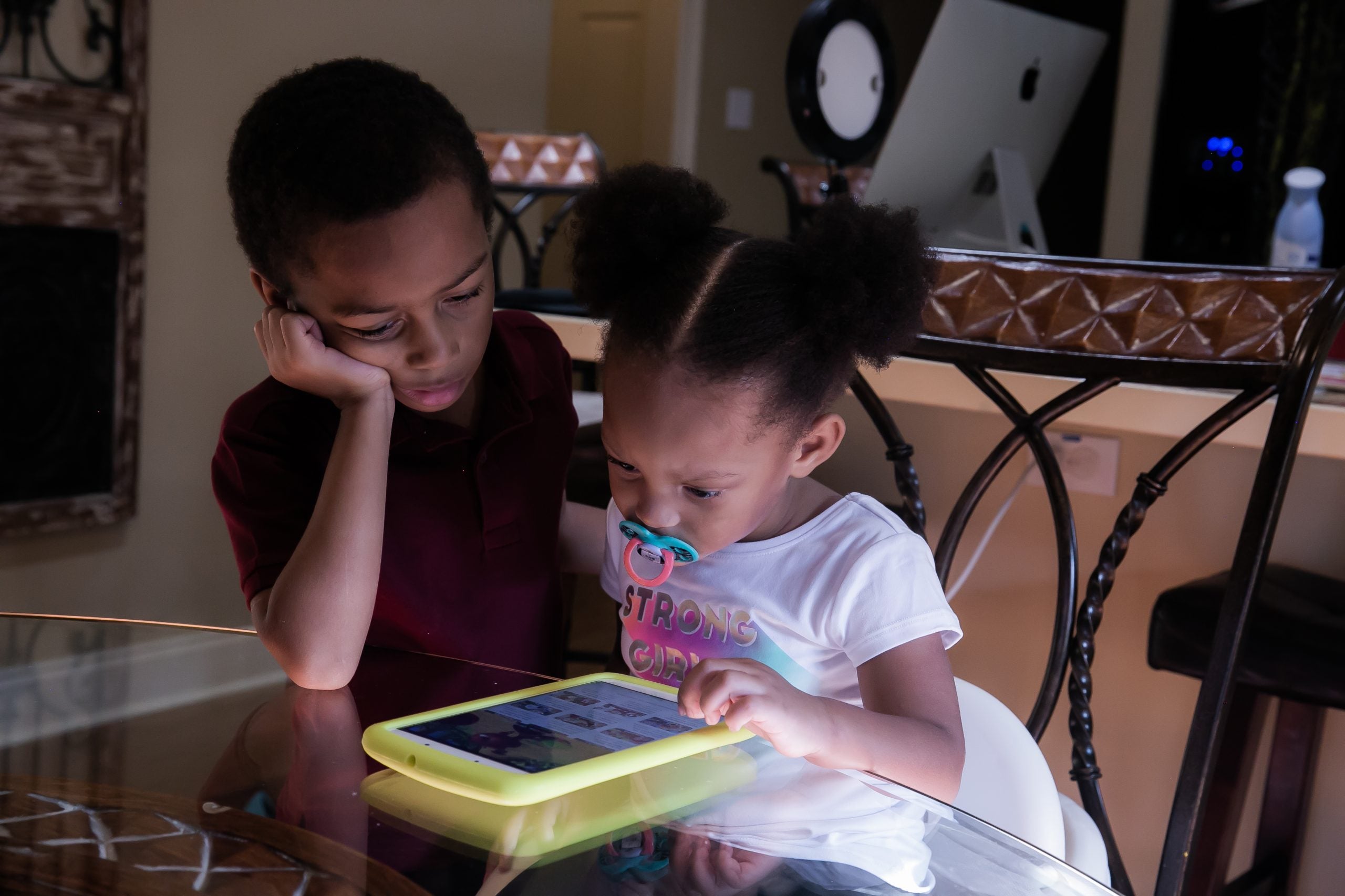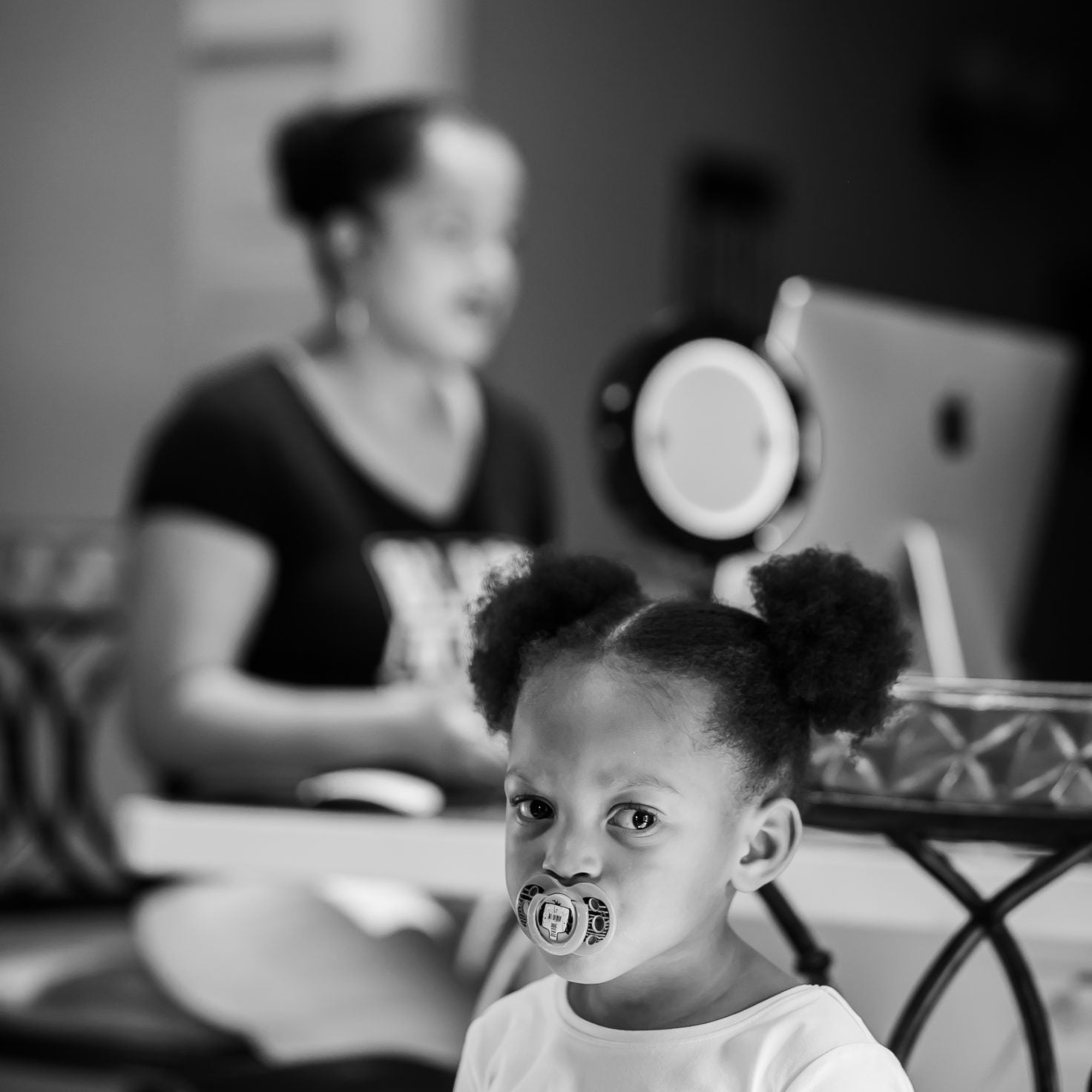
The Struggle Is Real For Single Moms During Pandemic But Should We Feel Sorry For Them? (Live Broadcast)
by Tj Sotomayor February 22, 2021 0 commentsThey Made The Choice!
By: Tommy “Tj” Sotomayor
The Struggle Is Real: Working Black Mothers, Childcare And COVID-19

Today, I survived another COVID-19 pandemic workday. As I finish this article at 4:30 am, and as I prepare to get into bed at the start of a new day, I reflect on how the workday started. I tiptoed past my sleeping five-year old son and two-year old daughter, wished my husband well as he left our home to work full time in an essential role off site, then I hurried to my home office to begin work in hopes of getting as much done while uninterrupted before our sleeping children arose.
After working on various projects, I joined my first virtual meeting for the day. Thirty minutes into my meeting, I see my toddler daughter entering the room from behind. Fifteen minutes later, I see my son enter. My tiny co-workers have arrived for the day. I acknowledge their presence with meeting attendees and continue conducting the meeting occasionally going off camera and muting as needed as my toddler asks me to identify animal cracker shapes. By now, frequent business partners know that we are a package deal as we can’t take the health risks of enrolling our children in an in-person school or daycare.
Far from an unusual occurrence, and certainly minor compared to virtual kindergarten while working, wiping up spills while working, tripping over toys while working, announcements of bathroom needs while I’m on the phone, praying I make it through my business IG lives, and a good old-fashioned toddler meltdown, it was, thankfully, a less eventful COVID-19 pandemic workday. And although I know that these are unprecedented times, I still wonder what I could have done differently to create a better balance.
Not only did I survive the workday, I survived the guilt of feeling frustrated because I am not able to be as productive as I was when I had structured daycare and was able to work independently. Knowing that my feelings of frustration about not being able to accomplish what I could prior to March 2020 is rooted in my inability to limit the amount of childcare related interruptions stings deeply as I adore my kids, love being a mom, value quality time with my family, and feel blessed to have the privilege to work from home, and for myself. However, providing full time childcare and being a COVID full-time work from home mom is unsustainable. And although I survived the day, the wear and tear on my physical and mental health was real. And as a Black woman, I deserve more than trying to survive the workday while trying to survive the deadly health risks of the pandemic.

The lack of childcare to meet my family’s needs feels very isolating, but in reality, it is a systemic issue that is creating a pandemic within a pandemic for working mothers, and as a Black woman trying to survive this pandemic, I know that I am not alone.
According to a report released by The Century Foundation and The Center for American Progress, four times as many women as men “dropped out” of the labor force in September, roughly 865,000 women compared with 216,000 men, and many of us who are bearing the grunt of full-time childcare while working full time don’t have to ask why. However, because of systemic inequalities that created lack of generational wealth and unequal pay, Black and Latina women are least likely to opt to drop out of the labor force as they are more likely to be the sole breadwinner in the families or to have partners working outside of the home during COVID-19. Compounding the issue further, Black mothers are twice as likely to be responsible for all of their family’s childcare and housework during COVID-19 compared to white women. Even in a global pandemic that threatens our lives and that of our loved ones disproportionately, we still have to be superhuman.
Despite the many issues parents face in obtaining adequate childcare, many parents aren’t aware that there is a resource that may provide some temporary relief. In March, Congress passed two paid-leave provisions under the Families First Coronavirus Response Act (FFCRA) for families who need childcare but the provisions expire on December 31st.
Systemic barriers created by policymakers such as unequal pay, lack of paid and sick leave, and lack of affordable childcare are exacerbating the impact that the pandemic has on working Black mothers, underscoring the need to address these inequities that plagued Black women disproportionately prior to COVID and after temporary aid has expired.
The Center for American Progress reports that Black and Latina women have seen the largest drop in their employment-to-population ratios since February and jobs for Black women are returning 1.5 times slower than their white counterparts.
With only 52% of Black women saying they have enough income to support their basic needs during COVID-19, compared to 71% of white women, how can parents working during the pandemic or re-entering the workforce after unemployment afford the extraordinary cost of childcare with the average cost of daycare being over $9,000 a year?

Many parents, particularly low-income parents, report they will not be able to return to the pre-pandemic childcare arrangements compared to middle or high income parents. This hardship will likely disproportionately impact low-income parents of color, forcing them to leave their children in less safe or unstable childcare settings.
Research examining overall wealth found that the median wealth for single Black women as parents is $0 compared to $14,600 for single white women, and $41,410 for single white men as parents. Leaving many Black women led households without the safety nets to leave the workforce even temporarily to provide childcare and homeschool as compared to some of their white counterparts.
The economic impact of the pandemic is being felt disproportionately by Black women and women of color. With half of Black households being headed by single women, and 38% of these households living below the poverty line, thus making stable childcare less accessible, Black women across socioeconomic status are experiencing extraordinary levels of stress as they shoulder the weight of the pandemic with inadequate childcare, increasing risks of poor maternal health outcomes for Black women of childbearing age.
Frankie Robertson is an activist mom, lobbyist, and founder of The Amandla Group, a social justice consulting firm addressing the social and political determinants of health through policy, research, and advocacy. She serves as a technical assistance consultant for National Birth Equity Collaborative. Follow Frankie at Twitter: @frankiebrla FB: @theamandlagroupla and IG @the_amandla_group.







No Comments so far
Jump into a conversationNo Comments Yet!
You can be the one to start a conversation.Only registered users can comment.